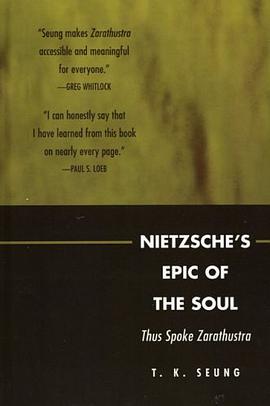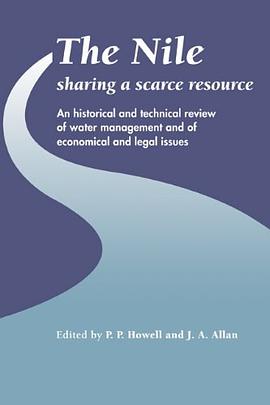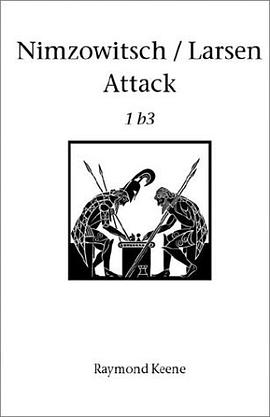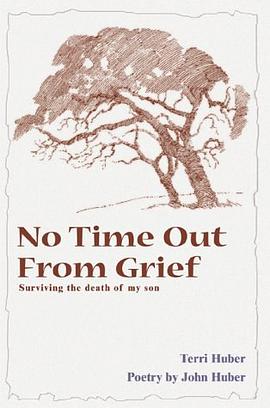

具体描述
This searching examination of human development provides new perspectives on the moral, political, scientific, emotional, and intellectual divisions of our time. A physicist by profession, Whyte looked beyond the boundaries of specialization for creative ways to approach the basic problem facing modern Western civilization: Why are we so competent technically and yet unable to order our own affairs, socially and personally? He takes the reader with him on a journey that is nothing less than a new interpretation of the general development of human consciousness.Whyte's thesis is that the current stage of human development makes not only necessary, but inevitable, constructing a "unitary method of thought" to overcome the dualism of the modern Western mind. He argues that the deepest troubles of Western civilization are due, in large part, to excessive reliance on the ancient Greek postulates of permanence and invariance as an ordered form of thought resulting in an extreme, mechanistic anti-humanism. What culminated in two world wars, Whyte argued, is a European dissociation, or "lesion." This dissociation represents an achievement in terms of rational mastery of the natural and human worlds, unique social dynamism and differentiation, and the flowering of individuality. But the price was high: disordering of thought, emotion, and will; conflict between our deliberate and spontaneous, conscious, and unconscious energies; unstable polarization between a delusive unchanging ideal world and the reality of human transience and limitation. Whyte chooses nine thinkers to illustrate this historical and evolutionary movement, including Heraclitus, Marx, and Freud, and the resulting rignettesare a synthesis of knowledge that suggest, as well, a reorientation of thought, feeling, and action for the future.Lewis Mumford wrote of The Next Development of Mankind, "The book has intense and immediate value both for the practical person and for the theoretic thinker." Sixty years after its original publication it remains pertinent to understanding the cultural and social tensions of the new century.
作者简介
目录信息
读后感
评分
评分
评分
评分
用户评价
这本书的叙事节奏非常独特,它没有采用那种线性推进的论证结构,反而更像是一部交织着哲学思辨与田野调查笔记的混合体。我尤其被其中对“**慢思考**”价值的重新定义所打动。在当今这个以速度和效率为圭臬的时代,作者花了大量篇幅来论证,那些需要时间沉淀、无法被量化指标轻易捕捉的洞察力,恰恰是我们在面对全球性复杂危机时,最宝贵的财富。书中穿插了许多关于“**非线性决策**”的案例研究,这些案例并非来自商学院的教科书,而是源自生态修复项目、社区自治组织,甚至是艺术创作的幕后故事。这些故事展示了一种不同于传统精英主义的智慧——它承认不确定性,拥抱迭代,并且将“失败”视为信息收集的一部分。这种“慢”与“韧性”的结合,给我带来了一种久违的踏实感,仿佛在喧嚣的时代里,作者为我提供了一处可以暂时卸下焦虑的庇护所。这不仅仅是一本关于“发展”的书,它更像是一部关于“**如何存在**”的宣言,提醒我们技术的发展不应以牺牲人性的深度为代价。
评分这本书最令人耳目一新的地方在于它对“**集体智能**”的构建提出了一个极度务实的框架。作者并没有沉溺于对“超级人工智能”的浪漫幻想,而是聚焦于我们身边已经存在但尚未被充分激活的“**人与人之间的带宽**”。他用大量的篇幅详细阐述了如何通过设计更具包容性的沟通协议、如何建立更公平的知识共享机制,来实现真正意义上的“涌现”。我尤其欣赏他关于“**认知多样性保护**”的论述。他认为,如果一个群体中的所有人都使用相似的认知工具和信息来源,那么这个群体的智能上限就注定是有限的。因此,保护那些非主流的、边缘的、甚至在效率上看似低下的思维方式,恰恰是确保物种未来适应性的关键。这种将“低效”视为“战略资产”的观点,彻底颠覆了我过去对优化和效率的理解。全书的论述脉络,是从微观的个体心智健康,逐步推导出宏观的文明适应性,逻辑链条严密而又充满人文关怀。
评分翻开这本《人类的下一步发展》,我原本以为会看到一连串关于基因编辑、赛博格技术或是意识上传的宏大叙事,毕竟书名如此振聋发聩。然而,令我惊讶的是,作者似乎有意避开了那些科幻小说里常见的桥段,转而将笔触深入到了一个更为微妙、也更为迫切的领域:**人类心智的协同进化与社会结构的韧性**。书的第一部分,作者细致入微地剖析了数字信息过载如何重塑我们的认知模式,探讨了“注意力稀缺”时代下,个体如何抵抗算法的操纵,维护心智的主权。我特别欣赏作者引用的那些跨学科案例,比如从古代部落的口述传统到现代社交媒体的“信息茧房”现象,他以一种近乎人类学家的严谨态度,揭示了我们正在经历的集体心智转变,这绝非简单的技术升级,而是一场深层次的社会重构。书中对“去中心化信任体系”的探讨尤为精彩,它不是在鼓吹某种乌托邦,而是冷静地分析了在传统权威衰落后,社群如何通过新型的互信机制来维持其有机性。读完这部分,我感觉自己对日常生活中那些看似微不足道的互动和信息流动,都有了全新的理解和审视角度,它迫使我停下来问自己:我所接收和传播的信息,究竟是在构建一个更清晰的世界,还是在加固一个更狭隘的牢笼?
评分坦率地说,这本书的论述风格极具挑战性,它毫不留情地拆解了许多我们习以为常的“进步”神话。其中关于“**数字永生**”的反思部分,简直像一记闷棍。作者没有去批判技术本身,而是深入挖掘了人类对“时间终结”的恐惧,以及这种恐惧如何被资本化、被包装成一种可供购买的产品。他犀利地指出,当我们试图通过数据备份或上传来逃避肉体的局限时,我们可能正在丧失的,恰恰是那些定义我们为“人”的脆弱性、偶发性和最终的不可替代性。这种对存在本质的追问,远超出了技术预测的范畴,更像是哲学家尼采和存在主义者加缪在与当代技术官僚进行的一场隔空对话。我读到此处,不得不停下来反复咀嚼那些句子,那些描绘“**数字幽灵**”如何侵蚀真实体验的段落,文字的密度和思想的重量,要求读者付出极大的专注力。这不是一本可以边刷手机边读的书,它要求你全身心地投入到这场对“意义”的重新校准之中。
评分阅读这本书的过程,就像是参与了一场漫长而深邃的对话,它没有提供现成的答案,而是不断地抛出更深刻、更难以回避的问题。尤其在谈及**伦理边界的动态性**时,作者展现了惊人的洞察力。他认为,我们总是习惯于用静态的道德框架去约束快速演进的技术力量,这必然导致伦理滞后。与其不断地竖立禁止的标杆,不如学习如何培育一种**“预见性伦理”**——一种能够感知到未来可能风险并提前构建应对机制的能力。他没有指责任何特定的技术方向,而是强调,人类的“发展”能力,最终必须服从于其“自我约束”和“意义构建”的能力。这本书的文风有一种古老的重量感,夹杂着对人类潜能的深刻信念,但这种信念并非盲目乐观,而是建立在对历史教训的深刻反思之上。它读起来需要耐心,但读完之后,你会发现自己对“未来”这个词的理解,已经被彻底重塑,不再是关于速度,而是关于方向和深度。
评分 评分 评分 评分 评分相关图书
本站所有内容均为互联网搜索引擎提供的公开搜索信息,本站不存储任何数据与内容,任何内容与数据均与本站无关,如有需要请联系相关搜索引擎包括但不限于百度,google,bing,sogou 等
© 2026 book.wenda123.org All Rights Reserved. 图书目录大全 版权所有




















